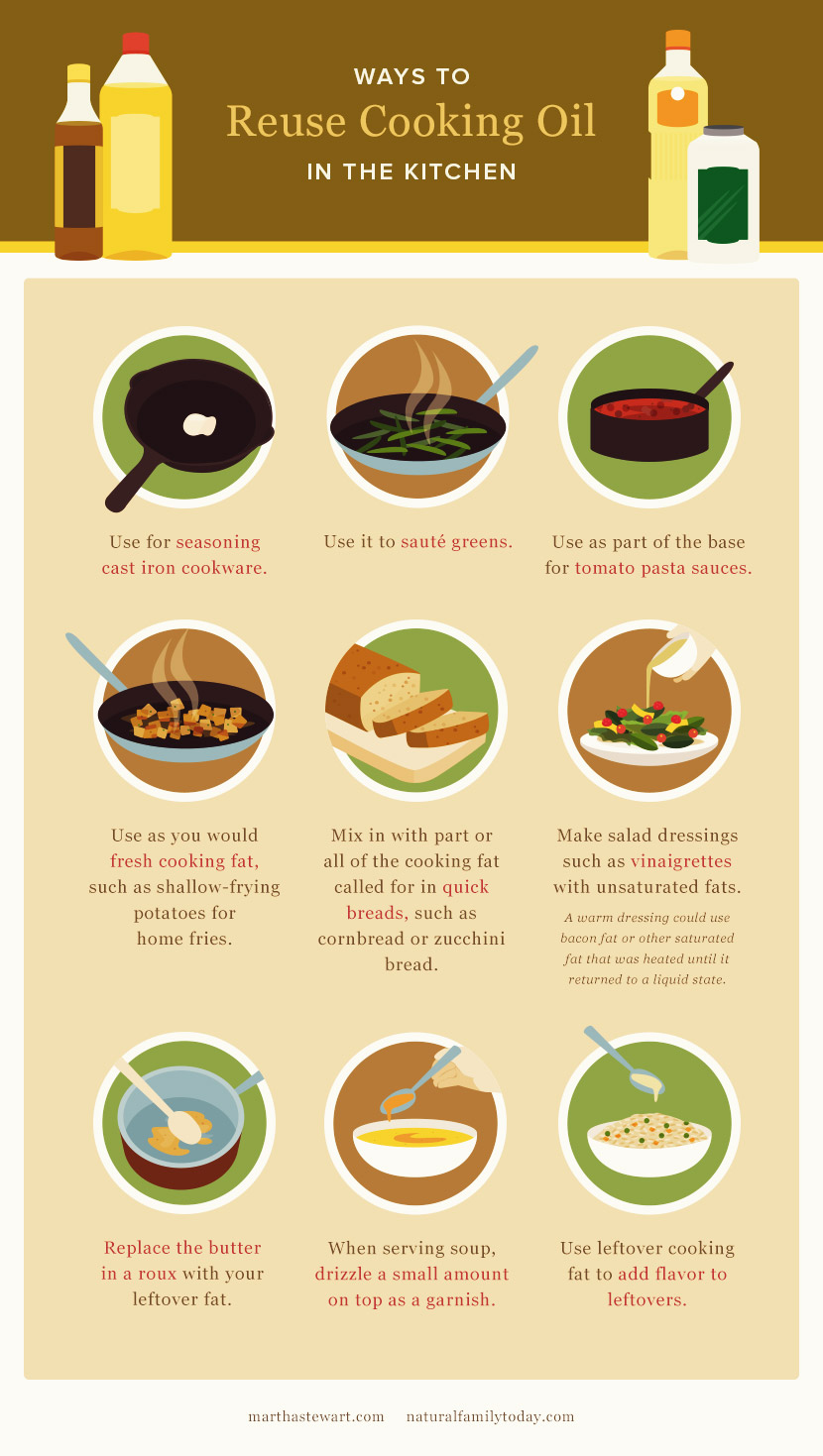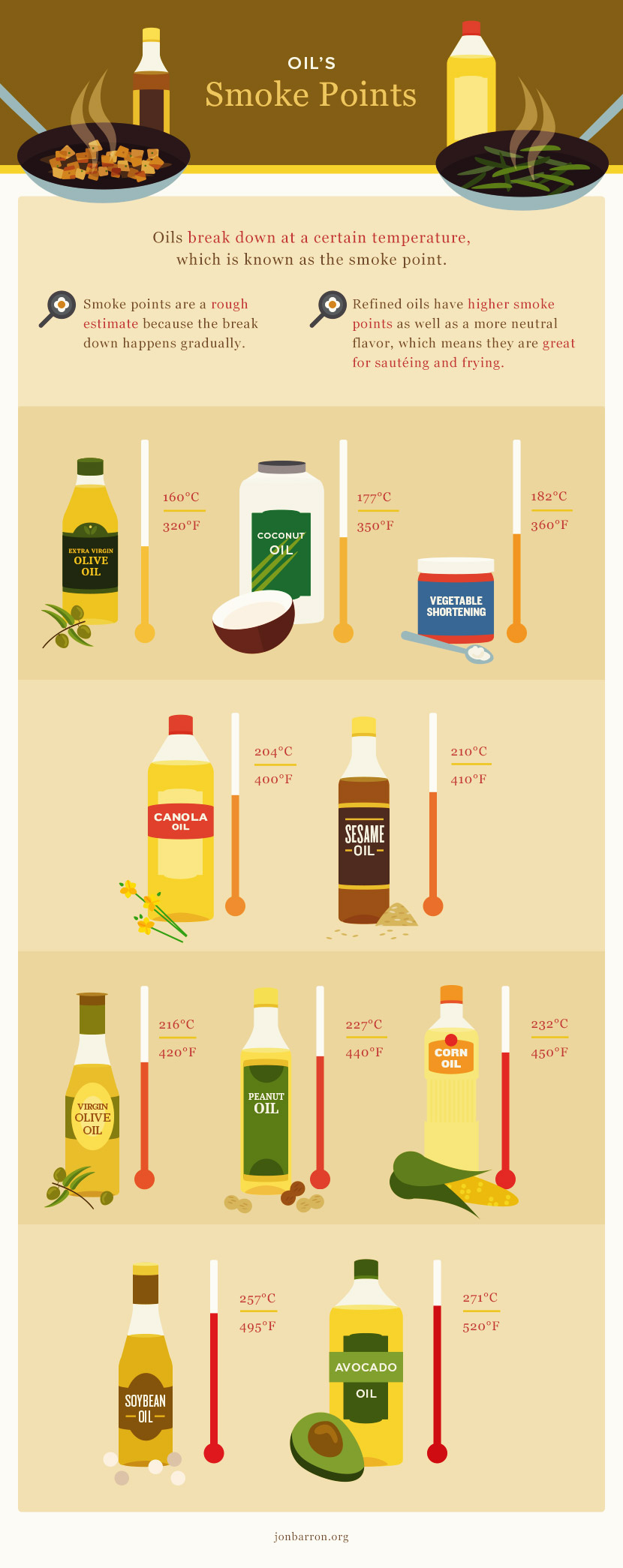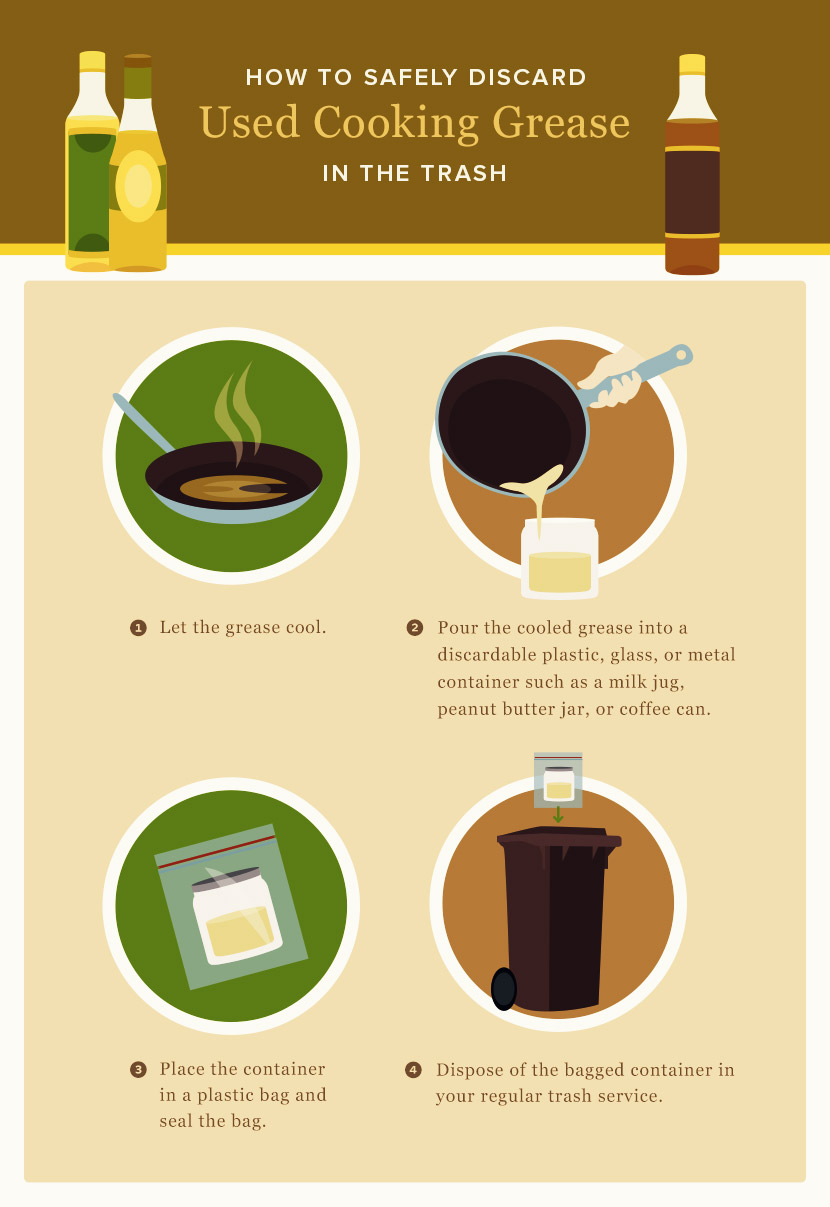Don't Default to the Drain
What to Do with Used Cooking Grease
What’s a home cook to do with leftover cooking grease? This kitchen conundrum has affected many of us, whether we’re frying, sautéing, or even roasting. Leftover frying oil, bacon grease, chicken fat, butter, coconut oil, or other fats are a reality of cooking. But while disposing of that grease by pouring it down the drain (or toilet) may seem like a simple solution, it can have potentially terrible – and expensive – consequences.
Why Improper Grease Disposal Is a Problem
Just as fat and cholesterol can block veins and arteries in the human body, fat in drains can lead to blocked pipes, sewer blockages in municipal lines, and nasty, costly sewage backups in your home and the environment.http://www.huffingtonpost.com/2013/11/28/what-to-do-with-leftover-cooking-oil_n_4350778.html
Sometimes people think they can flush grease down the drain with hot water – but that grease quickly cools and congeals in pipes. The toilet is not a suitable solution either. The grease will still harden in the plumbing underneath, potentially leading to some pretty nasty consequences.http://www.nyc.gov/html/dep/html/residents/congrease.shtml
Luckily, it’s easy to avoid problems like these. Some simple, free, cheap alternatives can help you get rid of leftover cooking grease safely, responsibly, creatively – and even tastily.
Prevent the Problem: Use Less
For starters, using less fat to begin with means you have less to dispose of after cooking. Not only will you put fewer calories into your dish, but using less oil can also translate to a lower grocery bill because your cooking fat stretches further. Here are some simple ways to reduce the amount of fat used when you cook.https://www.eatforhealth.gov.au/eating-well/tips-eating-well/low-fat-cooking-techniques
- Instead of deep frying, roast or broil in the oven, shallow-fry in a pan on the stovetop, or use the grill.
- When sautéing, decrease the amount of fat a recipe calls for (use a teaspoon instead of a tablespoon, for instance).
- Replace oil or butter with small amounts of water or stock. Add a little at a time to keep food moving and browning in the pan without steaming.
- Measure fats instead of free pouring them.
- Trim visible fat on cuts of meat (and put the trimmings in the trash or give them to your dog or cat).
- Choose leaner meats at the market.
- Steam vegetables instead of sautéing.

Use Leftover Fat in Future Cooking
Leftover fat is not a bad thing. Many animal and vegetable fats can be strained, stored in a closed container (such as a mason jar) in the fridge, and used in future cooking to add depth and flavor.
One of the most widespread examples of repurposing cooking grease involves bacon fat, although other saturated fats that are solid at room temperature, such as coconut oil or beef fat, can also be reused in the same way. When frying bacon on the stovetop or roasting it in the oven in a pan, you will have plenty of rendered bacon fat left in the pan. First, let the fat cool a little. Then, cover a glass jar with a paper towel or cheesecloth and carefully pour the bacon fat through the towel and into the jar. You can also buy specially made grease strainers.http://www.livinginnovative.com/blog/what-do-clever-cooks-do-with-used-cooking-oil Let the fat cool to room temperature, then store it in the fridge for later use.
This technique also works with unsaturated fats (ones that are liquid at room temperature). There’s one caveat to be aware of with unsaturated fats: when re-using plant-based fats, such as vegetable, corn, or peanut oils, make sure you don’t exceed the oil’s smoke point while cooking. When it smokes, the oil can become bitter. Smoking may also create free radicals, which can have long-term detrimental health effects on your body’s cells.http://gothamist.com/2013/11/25/cooking_oil.php

Turn Grease into Other Things
Sometimes you may not want to repurpose your leftover cooking grease for use in the kitchen, but you still don’t want to just throw it away. From candles to dog treats, there are lots of ways you can put leftover cooking fat to use around the house, in your yard, and even in your car. If you don’t want to re-use your grease at home, some areas offer recycling programs for safe cooking oil disposal.http://www.realsimple.com/magazine-more/inside-magazine/ask-real-simple/dispose-cooking-oil Check with your local public works department to see if they offer such a program.
Materials
- One small mason jar (such as a 4 oz. jelly jar)
- Candle wicking (make your own from rolled wet/salted paper, or order 1/4” lantern wicks or #2 candle wicks online)
- Bendable wire
- Leftover cooking fat, such as olive oil or vegetable oil
Directions
1. Cut the wick so it is 2” long.
2. Wrap one end of the wire 1/2” down from the top of the wick, keeping the wick loose enough to adjust it easily later.
3. Shape the wire so it can hook on to the lip of the jar’s mouth.
4. Pour the oil into the jar, leaving 1/2” to ¬3/4” headspace.
5. Light the wick and enjoy the soft glow of your homemade oil lamp.
Don’t Pour It Away, Throw It Away
No matter what, sometimes you will need to throw out cooking grease. Don’t be tempted by the drain. The best way to dispose of cooking grease is to safely and responsibly put it in the trash.http://www.nyc.gov/html/dep/pdf/resgrs_english.pdf

Capitalize on Clean Up
You can further minimize the grease that goes down the drain by scraping leftover scraps into the trash. Then wipe down plates, bowls, pots, and pans with paper towels to soak up any lingering grease, and wash them with hot, soapy water.
Leftover grease is a reality in any kitchen, but it’s easy to reduce, reuse, or dispose of it without resorting to the drain. Once you find new ways to cut down on fat, use it in different ways, and throw it away responsibly, you can rest assured that you’re preventing plumbing problems and treating your body, home, and budget better.
Embed the article on your site

